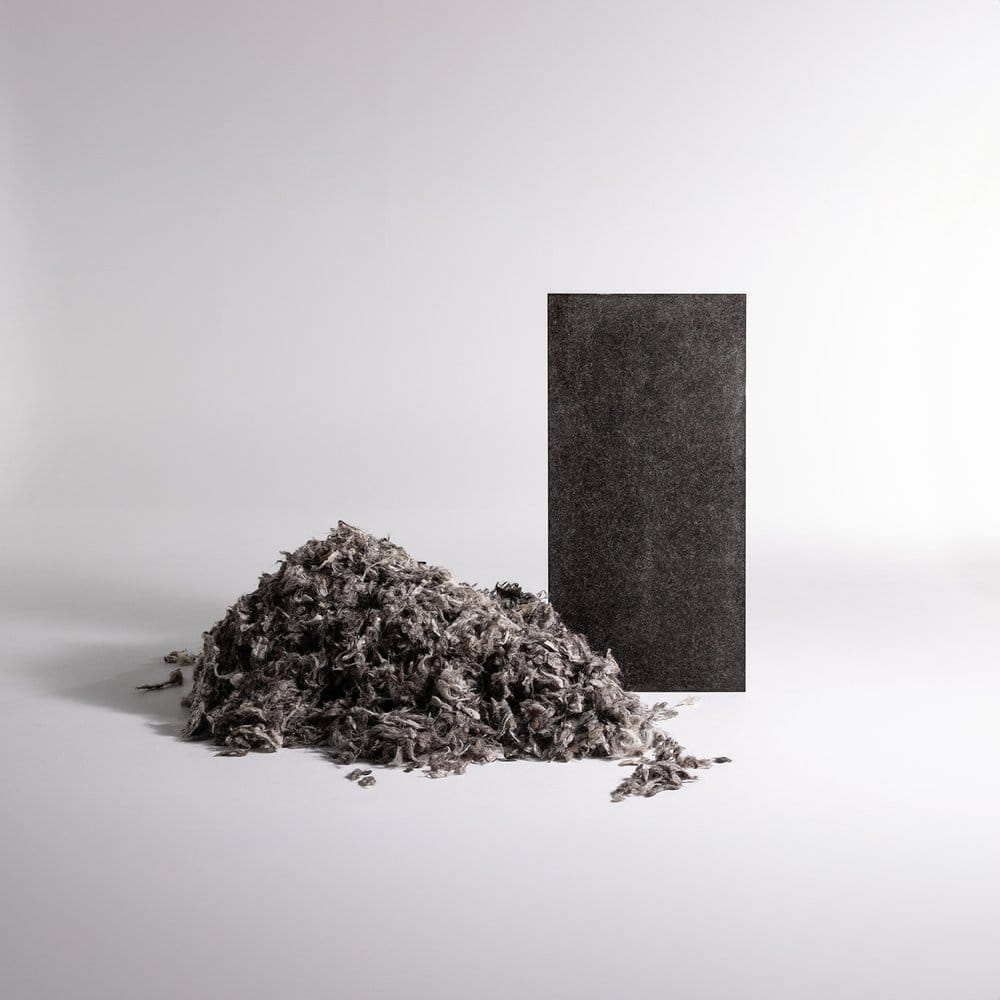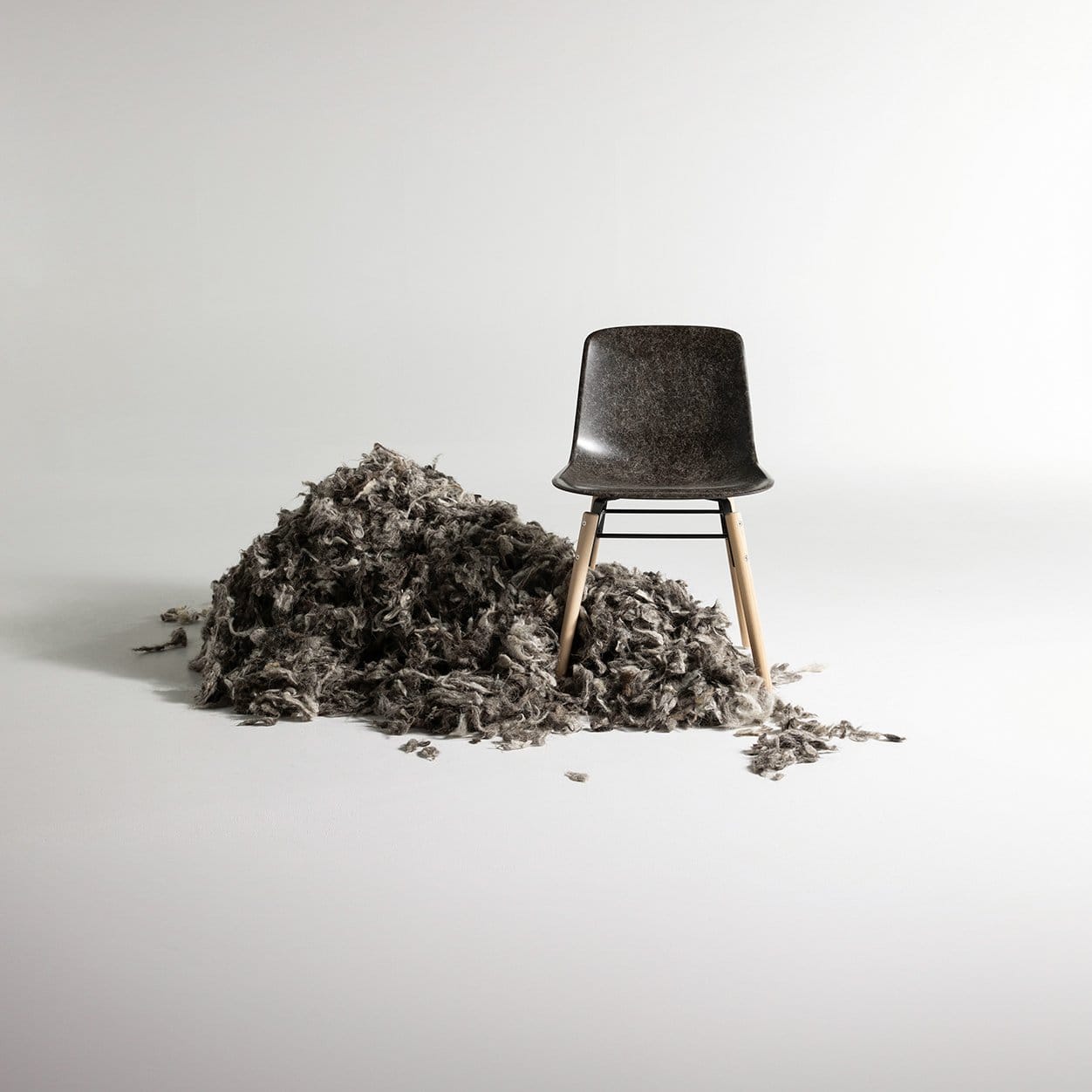Wool has long symbolized softness, tradition, and comfort. But what if it could also be structural, resilient, and sharply modern? Solidwool is the answer to that question, a composite material made from 50% wool and 50% bio-resin, merging heritage with high performance.


Developed in Devon, Solidwool is not just an alternative to petrochemical-based composites like fibreglass, it’s a bold material rethink. By combining undervalued British sheep wool with plant-based resins, the material forms rich, durable sheets that carry visible traces of the fibres that built them. The result is something striking: a marbled, matte surface with natural depth and character.

Two types of wool take centre stage. First, the dark, wiry fleece of the Herdwick sheep, native to the Lake District and once prized for carpet-making, brings a deep grey tone with flecks of lighter hair. Then there’s the Welsh Mountain sheep, whose white and black fleece creates an organic veining that resembles stone more than textile. In both cases, the wool is not just aesthetic, it’s a structural component, giving the material integrity as well as beauty.

Solidwool’s binders come from renewable sources like wood pulp and bio-fuel waste streams, lowering carbon emissions without sacrificing performance. The result is a material that can be cut, shaped, polished, etched, and bonded just like traditional plastics, but without the guilt. It’s strong, versatile, and far less toxic to work with.

The furniture range reflects this ethos. Each chair is cast, finished by hand, and assembled in the UK using British wool, recycled steel frames, and ash legs turned in Somerset. From raw sheet to refined form, Solidwool speaks of local making and thoughtful design.
In a world drowning in plastic, Solidwool asks us to reconsider waste, and see natural material not as a limit, but as a beginning.







